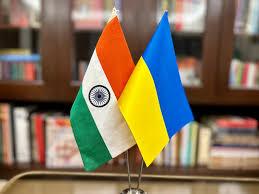
Bad Vatican Deal With China May Sink A Papal Conclave Favorite
This week, on the eve of the conclave in which 133 Cardinals gather in Vatican City to select a new Pontiff, headlines turned to one of the front-runners, Cardinal Pietro Parolin – and not in a way that might favor his election.
Though debates over hot-button issues like abortion, women's place in Church governance and sexual identity stoke controversies, Parolin's candidacy attracted attention over a distant issue: The Catholic Church's rocky relations with China.

Pope Francis is welcomed by Vatican State Secretary Cardinal Pietro Parolin (L) before boarding a plane at Fiumicino airport in Rome May 24, 2014. Phoyo: Asia Times files /Tony Gentile / Reuters
Parolin was Francis's Secretary of State, a job usually reserved for the Pope's closest advisor. It also put Parolin in charge of foreign relations. In that role, Parolin negotiated a 2018 agreement with the People's Republic on collaboration in the selection of bishops in China.
The results have received negative reviews. China ignored the accord and went ahead to appoint bishops without consulting, or even informing, Francis.
One question that gained traction this week is whether the apparent failure will sink Parolin's chances to succeed to the Throne of Peter.
Parolin negotiated and signed onto the 2018 agreement. The Pope declared it a breakthrough and Parolin told reporters that he was still in charge.“There is a dialogue on potential candidates, but Rome nominates, the Pope nominates, that's clear,” he said.
Well, not so clear. China's leader-for-life Xi Jinping viewed it more of a suggestion than a concession. China's State Administration for Religious Affairs issued regulations that ignored the accord. Only the state and the Chinese Catholic Patriotic Association, which it runs as a subordinate agency, are involved in selecting bishops. Beijing did not hesitate to appoint them, not even informing the Vatican.

Legal Disclaimer:
MENAFN provides the
information “as is” without warranty of any kind. We do not accept
any responsibility or liability for the accuracy, content, images,
videos, licenses, completeness, legality, or reliability of the information
contained in this article. If you have any complaints or copyright
issues related to this article, kindly contact the provider above.





















Comments
No comment